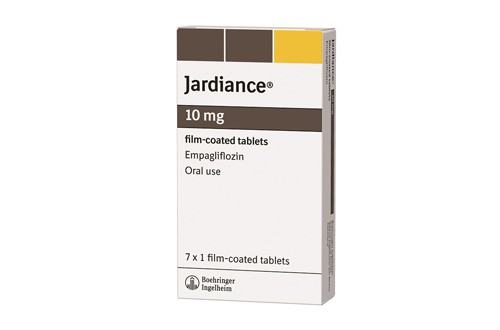
Boehringer Ingelheim and Eli Lilly’s Jardiance protects diabetes patients from kidney damage as well as cardiovascular complications, according to new data.
In the EMPA-REG trial reported last year, Jardiance (empagliflozin) became the first diabetes drug to be shown to reduce the risk of cardiovascular outcomes such as heart attack and stroke. Now, follow-up data from the trial shows that the drug also significantly reduced the risk of progressive kidney disease in type 2 diabetes with established cardiovascular disease by 39% versus placebo.
The new results – presented at the American Diabetes Association (ADA) conference in New Orleans this week – also represent the first time that a drug in the SGLT2 inhibitor class has been shown to have a positive impact on kidney damage, one of the key complications of diabetes.
Around a third of people with type 2 diabetes develop kidney complications, which in some cases can result in kidney failure and dialysis.
There has been very little improvement in the management of kidney damage in the last few years, despite the introduction of new drug classes to help control blood sugar more closely.
“In the US, the cost to treat chronic kidney disease is estimated to exceed $48 billion annually,” commented Christoph Wanner of the University Hospital of Würzburg, Germany.
“Since diabetes is the number one cause of kidney failure in the US, novel treatments that may have the potential to help address this crucial medical need are necessary,” he said.
The new data focused on new-onset or worsening kidney disease, and revealed that this occurred in 12.7% of patients taking Jardiance on top of standard care such as blood pressure drugs or statins, compared to 19% of patients on standard care plus placebo.
Drilling down into the data revealed a 55% reduction in the need for renal replacement therapy such as dialysis. The data also revealed a 44% cut in the rate of creatinine doubling in the blood (a measure of how effectively the kidney is filtering out waste) and a 38% reduction in albumin in the urine (a measure of kidney damage).
The new data gives Jardiance another boost as it competes in the market against rival SGLT2 inhibitors Invokana (canagliflozin) from Johnson & Johnson and Bristol-Myers Squibb/AstraZeneca’s Forxiga/Farxiga (dapagliflozin).
Outcome trials are also being conducted for canagliflozin and dapagliflozin but are not due to generate results until 2017 and 2019, respectively.
FDA tightens up warnings
Jardiance could also benefit from some unwelcome news this week for J&J and BMS/AZ, after the FDA tightened up warnings about acute kidney injury with Invokana and Farxiga.
The agency said that between March 2013 – when canagliflozin was approved – through to October 2015 it had received reports of 101 confirmable cases of acute kidney injury with canagliflozin or dapagliflozin use. In some cases some patients required hospitalization and dialysis.
It recommends that doctors evaluate patients for factors that may predispose them to kidney damage, such as reduced blood volume, heart failure or use of some medications – before considering a prescription for these drugs.
The US regulator recently also tightened up warnings about ketoacidosis – a side effect leading to too much acid in the blood – and serious urinary tract infections with SGLT2 inhibitors. The decision was taken in the wake of a safety review by the FDA, which kicked off in May.




